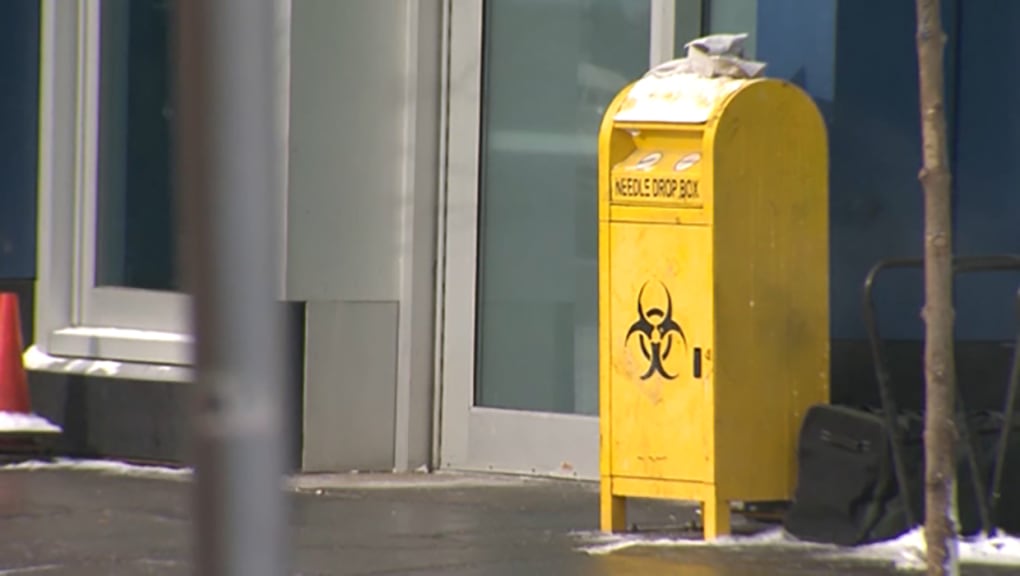Health
Calgary’s Harm Reduction Teams Face Supply Cuts Amid Health Changes

Grassroots harm-reduction teams in Calgary are grappling with significant changes following the province’s restructuring of health services. As of March 2024, the organization Safeworks has ceased providing free needles, pipes, and other essential supplies to local partner agencies. This shift raises concerns about the safety and well-being of drug users who rely on these resources.
The decision to halt the distribution of harm-reduction supplies stems from an overhaul of health services by Alberta Health Services. This restructuring is intended to streamline operations, but the immediate impact has been felt by non-profit organizations that support vulnerable populations. For many, the availability of clean needles and pipes is critical to reducing the risk of infections and overdoses.
Local organizations have expressed their alarm over the ramifications of this policy change. According to representatives from several grassroots teams, the loss of these supplies not only endangers the health of drug users but also undermines ongoing efforts to combat the growing crisis of substance use in the area. They report that the absence of free supplies could lead to increased rates of disease transmission and overdose fatalities.
In Calgary, the harm-reduction approach has been a key element in addressing public health issues related to drug use. Community outreach programs have provided essential services, including safe consumption sites and access to health care, for years. The withdrawal of support from Safeworks disrupts this delicate network, making it more difficult for these teams to operate effectively.
Advocates for harm reduction argue that the province’s decision reflects a troubling trend towards diminishing support for programs that save lives. They stress the importance of maintaining access to clean supplies, which are proven to reduce health risks associated with drug use. For many in the community, this transition feels like a step backward in the ongoing fight against addiction and its consequences.
Local officials have begun voicing their concerns, urging the provincial government to reconsider the decision. They emphasize that without adequate resources, the ability to provide safe and effective harm-reduction services is severely compromised. The backlash has prompted discussions about the future of public health policy in Alberta and the role of community organizations in supporting at-risk populations.
As the situation unfolds, stakeholders are calling for immediate action to restore access to essential harm-reduction supplies. The community’s response underscores the critical nature of these services in promoting public health and safety. With rising concerns about overdoses and the spread of infectious diseases, the need for a coordinated response has never been more urgent.
In conclusion, the cessation of free supplies by Safeworks signals a challenging period for harm-reduction efforts in Calgary. The implications of this policy change extend beyond individual health, affecting the overall public health landscape in the province. As advocates continue to push for change, the need for comprehensive support for drug users remains a pressing issue for the community.
-

 Science3 months ago
Science3 months agoToyoake City Proposes Daily Two-Hour Smartphone Use Limit
-

 Top Stories3 months ago
Top Stories3 months agoPedestrian Fatally Injured in Esquimalt Collision on August 14
-

 Health3 months ago
Health3 months agoB.C. Review Reveals Urgent Need for Rare-Disease Drug Reforms
-

 Technology3 months ago
Technology3 months agoDark Adventure Game “Bye Sweet Carole” Set for October Release
-

 World3 months ago
World3 months agoJimmy Lai’s Defense Challenges Charges Under National Security Law
-

 Lifestyle3 months ago
Lifestyle3 months agoVictoria’s Pop-Up Shop Shines Light on B.C.’s Wolf Cull
-

 Technology3 months ago
Technology3 months agoKonami Revives Iconic Metal Gear Solid Delta Ahead of Release
-

 Technology3 months ago
Technology3 months agoApple Expands Self-Service Repair Program to Canada
-

 Technology3 months ago
Technology3 months agoSnapmaker U1 Color 3D Printer Redefines Speed and Sustainability
-

 Technology3 months ago
Technology3 months agoAION Folding Knife: Redefining EDC Design with Premium Materials
-

 Business3 months ago
Business3 months agoGordon Murray Automotive Unveils S1 LM and Le Mans GTR at Monterey
-

 Technology3 months ago
Technology3 months agoSolve Today’s Wordle Challenge: Hints and Answer for August 19









